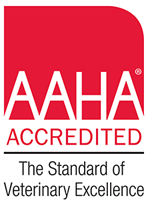So you’re interested in getting a hedgehog for a pet, or perhaps you’ve already gotten one. With the proper care, these little guys can make good pets as they’re relatively odorless, rarely bite, and are relatively quiet (though they are nocturnal which can be problematic for some). They’ve certainly become a much more common pet over the last several years and finding one (especially from a reputable establishment) may take a bit of work. But there’s no doubt about it – they are adorable!
General Characteristics:
Originally from Africa (the most common pet hedgehogs we see) or Europe, these small mammals are insectivores, though they do eat much of what they can get ahold of. Their average lifespan is 4-6 years, though with proper care (and good genetics) they have been known to live 8-10 years! Their average full grown size is 300-600 grams though they range from 220-1000 grams. They usually grow to 6-14 inches in length. Hedgehogs come in a variety of colors. They are notoriously smart, but the ability to train them is limited, and usually do best when housed alone. When scared, they roll up into a ball exposing only their spines and will hiss. Their underbelly is covered in soft fur.
Environment:
Hedgehogs need quite a bit of room with a single adult doing best with at least a 2’x4’ enclosure with a solid floor. The sides can be mesh wire or also solid, but you want to make sure the cage has good ventilation. Guinea pig, ferret or rabbit cages will work well if the proper size, while some people prefer extra large storage containers without a top. There is considerable debate on what constitutes the best bedding material and some that can be considered include newspaper, unscented recycled paper bedding, or solid fleece fabric. Cedar products should not be used. If one of the 1st 2 choices, you will want to supervise the pet to make sure he/she isn’t eating the bedding. If using the fleece, you will need several sheets as each will need to be removed daily for laundering in a hypoallergenic detergent such as Dreft. Because hedgehogs like to hide & burrow, a hide box, tube and/or sleep sack should be utilized. In the evening they can be quite active and so a ferret sized solid bottom wheel is essential for exercise. Many of these come with litter pans, but if yours does not, you can also buy a litter pan that you fill with recycled paper pellets (NOT the clay or clumping cat litter) such as Yesterday’s News. Some people find that their pet does better with a ceramic water bowl while others prefer a water bottle (though some have reported the pet’s long tongue could get stuck in the tube). Whichever you choose, make sure the pet is comfortable using it & it is always filled with fresh water. A huge consideration is warmth. The hedgehog must be in an environment that’s between 75 and 85 degrees. It is possible that if kept in cooler temperatures for prolonged periods of time the hedgehog will go into hibernation which can be lethal. To maintain this temperature, a ceramic ultraviolet heat lamp which doesn’t emit light is recommended. Use a thermometer to monitor the temperature.
Food:
As mentioned previously, hedgehogs are insectivores and require a high protein diet (30-50%). Although there are commercially available insectivore diets, they are not readily available & most likely will need to be ordered online. One such brand is Mazuri. Most people will also feed a high quality, high protein chicken flavored cat kibble such as ProPlan Chicken & Rice. In addition a small part of the diet can be fruits and vegetables (diced apple, cooked yam or carrots, green beans, peas), cooked food (eggs, ground beef, chicken), and insects such as mealworms & crickets. Obesity is a VERY common condition in adult hedgehogs! (Please note that your hedgehog should always have the ability to roll up completely into a ball.
The inability to do so is likely from obesity.) Ideally, having a gram scale to weigh your hedgehog monthly is advised.
A general recommendation on quantity of food per day for an adult is: 3-4 tsp dry cat/insectivore kibble + 1-2 tsp varied moist food & invertebrate prey (canned cat food, low fat cottage cheese, scrambled egg, cooked hamburger, mealworms, waxworms, gut loaded crickets) + 1 tsp diced fruit/vegetable mix. Avoid hard/uncooked veggies, large items, nuts & seeds, milk and raw eggs or meat.
Handling:
Typically, the more a hedgehog is handled, especially if by the same person, the more friendly he/she will become. Ideally, allowing supervised interactive play/handling for an hour a day is recommended. (Be careful & constantly monitor him/her because they will try to get into small places where they might not be so easily retrieved, and they will eat things they aren’t supposed to that could cause GI obstructions.)
Veterinary Care:
Unlike our more common pets (dogs & cats), hedgehogs don't require immunizations. However, because they are adept at hiding illness, regular veterinary visits are encouraged to keep an eye on your pet's weight, status of his/her teeth, general overall health, and to catch any issues early. Cancer, obesity (as previously mentioned), and dental disease are quite common in hedgehogs but there are many other conditions we see in them as well such as eye & ear infections, mites, heart disease and GI obstructions. And it is estimated that as many as 10% of pet hedgehogs will be affected by Wobbly Hedgehog Syndrome – a progressive ultimately fatal neurologic disease that some compare to MS in people. Prompt veterinary care is recommended for guidance on treatment and care. Since most hedgehogs wouldn’t tolerate teeth brushing, to help maintain the hedgehog’s teeth, you may incorporate a couple of pieces of tartar control kibble into the diet each day (or cat treats), and may even put a speck of pet toothpaste such as CET poultry toothpaste onto the kibble. Please note that hedgehogs may carry Salmonella – a bacteria that can be transmitted to people (especially children & immunocompromised adults) & cause illness. Always wash your hands after playing with your hedgehog.
Interesting Hedgehog Facts:
They are illegal to own in Maine, Arizona, Georgia, California, Pennsylvania, Hawaii & New York City.
They are predominantly immune to snake venom.
A hedgehog has 5,000-7,000 quills. Young hedgehogs lose their “baby” quills & develop adult quills in a process called quilling. This takes place somewhere between 8 weeks & 6 months of age and may last as long as a month.
When they smell strong or unpleasant smells they may produce excess saliva & rub it on themselves, a process called self-anointing.
They don’t have very good eyesight & mostly rely on their sense of smell & hearing.
Hedgehogs can travel 1-2 miles each night! (This is why an exercise wheel is so important!)
RESOURCES:
Veterinary Information Network – Cathy Johnson-Delaney, DVM, Diplomat ABVP – “Hedgehogs Pet Care”
Ferrets, Rabbits & Rodents – Clinical Medicine & Surgery, 3rd edition. Katherine Quesenberry & James Carpenter. Elsevier Publishing. 2012.
The International Hedgehog Association - http://www.hedgehogclub.com
Hedgehog Care - http://www.hedgehogcare.org

